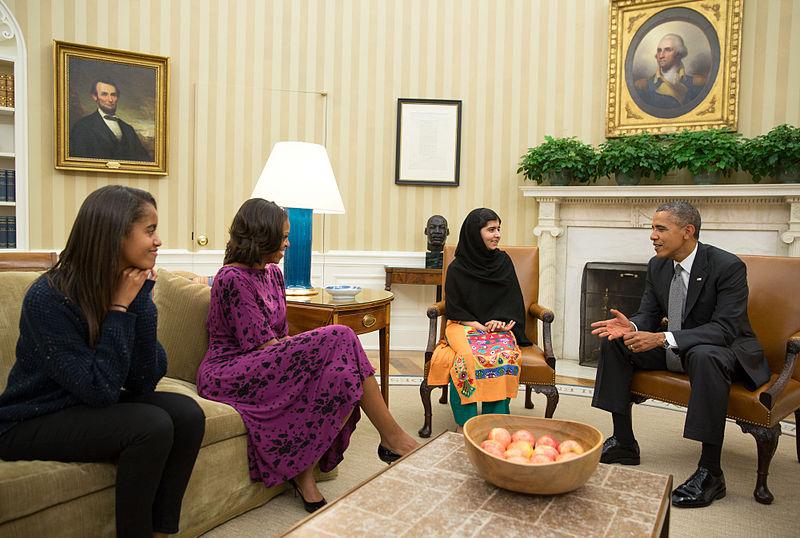Malala Yousafzai
February 9, 2014
http://en.wikipedia.org/wiki/File:Malala_Yousafzai_Oval_Office_11_Oct_2013.jpg
Born in 1997, Malala became an advocate of girls education and recieved a nomination for a Nobel Peace Prize by the age of 16. Last October, she met with the Obama family in the Oval Office.
Hero, activist, inspiration. Few can claim to have achieved this kind of international renown, yet at age 16, Malala Yousafzai has been nominated for a Nobel Peace Prize and serves as a global spokesperson for female rights and education.
Malala began speaking out against the Taliban in 2009 through anonymous blog posts on the BBC Urdu website. There, she described her daily life in Swat, a district of Pakistan, where the Taliban banned girls from attending schools and destroyed local schoolhouses.
“I think what she’s doing is noble and right. Everyone, no matter the race, gender, and whatnot, should always get education from as young as possible,” Gerry Zhou (12) said. “What she’s doing is setting humanity on the right track.”
That same year when the New York Times featured her story in a documentary, Malala began publicly advocating for female education in interviews and on television.
When a Taliban shooter attempted to assassinate her in October 2012 while she rode in a school bus, the incident was received with international outrage. Malala survived and has been advocating for universal access to education ever since.
“I am not against anyone, neither am I here to speak in terms of personal revenge against the Taliban or any other terrorist group,” Malala stated before the UN chamber and 500 other young education advocates. “I’m here to speak up for the right of education for every child. I want education for the sons and daughters of the Taliban and all terrorists and extremists.”
Malala now lives in England with her family.
